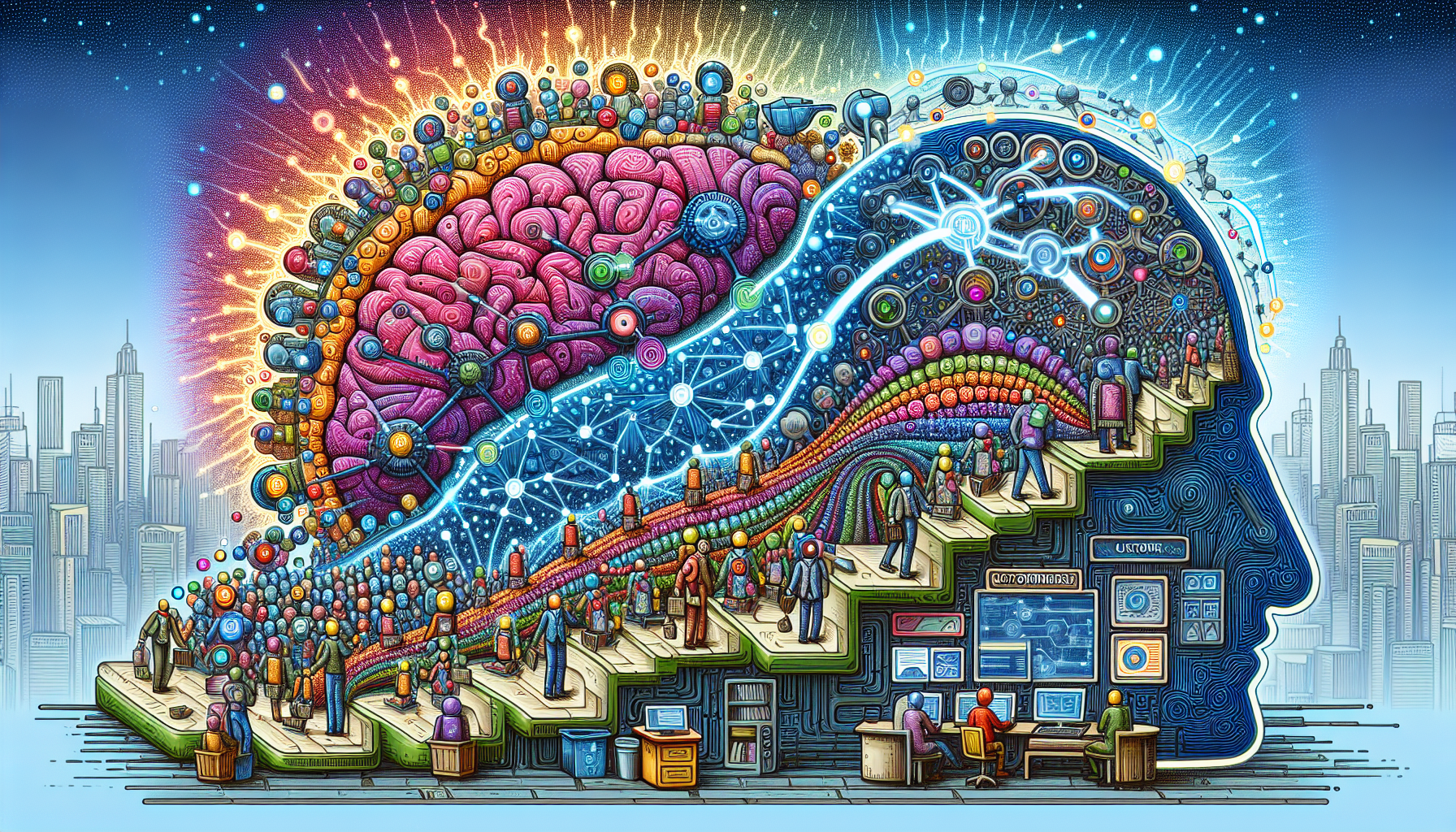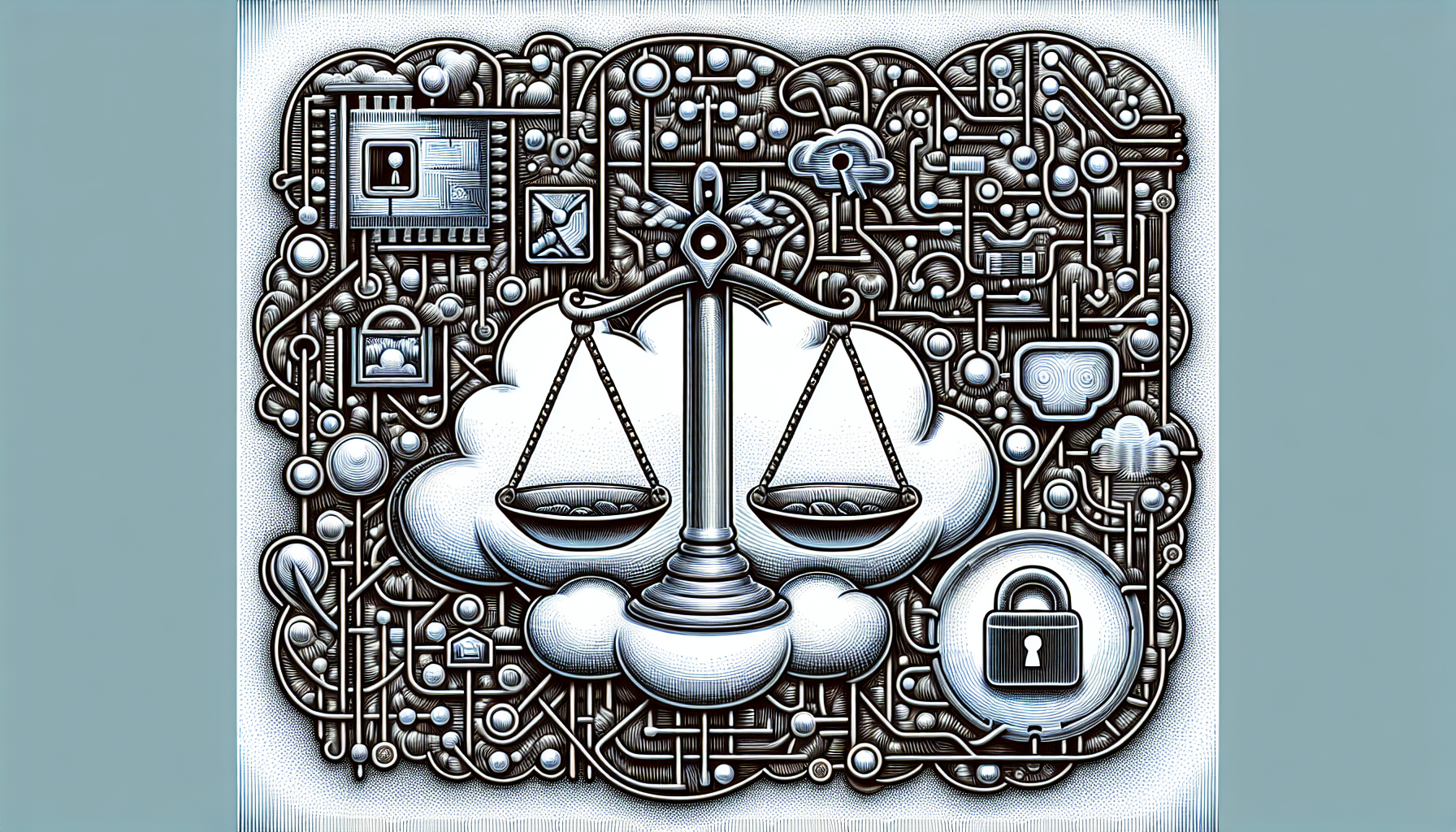Top 5 AI Sales Roles Transforming the Market in 2024: Skills, Growth & Opportunities
 Simar Kohli
Simar Kohli
Are you ready for the AI revolution in sales? AI-driven technologies are reshaping careers in sales, creating new roles and demanding new skills. This article identifies the top five AI sales roles for 2024, outlining the expertise required to excel and the opportunities they offer. Stay ahead in your field; learn what it takes to be a leader in the era of AI sales.
Key Takeaways
-
AI-powered systems are significantly changing the sales landscape by automating tasks, assisting in sales forecasting, and enhancing customer engagement, with 75% of B2B sales teams adopting AI in combination with traditional methods.
-
The sales industry has seen the emergence of specialized AI roles such as AI Sales Strategist, Conversational AI Specialist, and Predictive Analytics Expert, highlighting the current high demand for professionals with both sales expertise and AI knowledge.
-
As AI transforms the sales process, professionals must acquire relevant AI skills through formal education, online courses, certifications, and practical experience to succeed in roles that blend technology and traditional sales functions.
The Impact of AI on Sales: A New Era

The advent of AI in sales is a game-changer, bringing about a paradigm shift in how businesses operate. AI-powered systems are enhancing sales performance and customer engagement by performing tasks that historically required human effort. From automating various aspects of the sales process such as lead generation and prospecting strategies, to improving customer interactions with AI tools like conversational AI, AI is reshaping the sales process.
The capacity of AI to assist in precise sales planning and future sales forecasting using predictive intelligence and data analysis has resulted in 75% of B2B sales teams adopting it, often alongside conventional solutions. In this AI-dominated sales era, earning customer trust necessitates clear communication about how these technologies are employed, their functionality, and their influence on decision-making.
Automation in Sales
As per a McKinsey report, AI has improved efficiency in sales by automating 30% of sales tasks, thus enhancing the speed of the sales cycle and facilitating sales tracking. By automating repetitive tasks such as:
-
data entry
-
appointment scheduling
-
email campaign management
-
mundane data analyst tasks
AI allows sales professionals to focus on selling and relationship-building. AI tools like generative AI streamline the pre-sales process, assisting in client research and outreach personalization.
While AI takes over certain tasks, it’s essential for sales teams to concentrate on work that utilizes their skills, such as profound human interactions and decision-making that makes a difference.
Personalized Customer Engagement
In today’s digital age, personalization is key to customer satisfaction. AI-driven personalization in sales is acknowledged by 92% of companies worldwide as a transformative approach to improving customer outcomes. Technologies such as natural language processing, machine learning, and sentiment analysis are being utilized to enhance customer experiences, providing personalized recommendations and improving the understanding of customer feedback.
Behavioral segmentation and AI analytics are leveraged to develop marketing campaigns and sales pitches tailored to specific customer segments, significantly improving customer experience and optimizing revenue generation. Conversational AI Specialists play a critical role in increasing the personalization and interactivity of customer interactions, crucial factors for retaining and acquiring new customers.
Data-Driven Decision-Making
Data is the new gold in the business world. AI-powered sales analytics tools, utilizing data science, can:
-
Automatically collect and analyze vast amounts of data from various sources
-
Provide accurate and up-to-date insights
-
Gather and process large volumes of data
-
Enable sales teams to make informed decisions based on data-based insights, trends, and patterns.
Predictive AI helps with lead scoring by evaluating and ranking potential customers based on their likelihood to convert, thereby improving sales efforts. Predictive analytics tools forecast future outcomes using historical data and machine learning algorithms. The integration of AI-powered sales data into business operations provides insights that offer a competitive edge in strategy development, resource allocation, and targeted marketing.
Top 5 AI Sales Roles in 2024

As AI continues to revolutionize the sales domain, new roles are emerging, demanding expertise in the sales domain combined with a deep understanding of AI products and technologies. Among these roles are:
-
AI Sales Strategist
-
Conversational AI Specialist
-
AI-Powered CRM Analyst
-
Predictive Analytics Expert
-
AI Sales Trainer
These professionals are being actively sought after by companies in natural language processing, machine learning, productivity software, IT, IoT, hardware, computer vision, cloud services, and robotics industries, indicating a promising future for AI sales roles in 2024.
AI Sales Strategist
An AI Sales Strategist has a pivotal role in utilizing AI technologies to devise and execute sales strategies that cater to the changing market demands. This role requires a diverse skillset, including:
-
Data analysis
-
AI and machine learning knowledge
-
Strategic planning
-
The ability to translate insights into actionable sales initiatives.
The growth opportunities for AI Sales Strategists are significant due to the expanding integration of AI in sales processes and the need for skilled professionals to drive AI adoption in sales strategies.
Conversational AI Specialist
Conversational AI Specialists have a significant role in improving customer interactions through the creation and fine-tuning of chatbots and virtual assistant technologies. They need to be proficient in:
-
Natural language processing (NLP)
-
Machine learning
-
Dialogue management
-
Semantic extraction techniques
-
Data structures
-
Modeling
Building a portfolio through personal AI projects, like developing chatbots or recommendation systems, showcases a Conversational AI Specialist’s problem-solving skills and practical experience.
AI-Powered CRM Analyst
AI-Powered CRM Analysts specialize in optimizing customer relationship management systems by integrating and utilizing AI technologies to enhance insights and sales accuracy.
Skills necessary for an AI-Powered CRM Analyst include:
-
Proficiency in data analysis
-
An in-depth understanding of CRM software
-
The ability to leverage AI tools for processing unstructured data into actionable insights.
Predictive Analytics Expert
Predictive Analytics Experts leverage AI to:
-
Identify patterns in data which enable forecasts regarding customer behavior, sales trends, and market opportunities
-
Create personalized experiences by anticipating future customer behaviors
-
Inform a thoughtful sales approach
-
Manage inventory for better revenue forecasting.
Expertise in statistical analysis, machine learning, and proficiency with statistical software like R, Python, SAS, or SPSS are pivotal for Predictive Analytics Experts.
AI Sales Trainer
An AI Sales Trainer plays a fundamental role in educating and training sales teams. Their tasks include:
-
Creating training materials
-
Conducting workshops
-
Performing skills gap analyses
-
Creating curricula
-
Producing educational materials
-
Evaluating training outcomes
-
Ensuring successful adoption of AI in sales processes
AI Sales Trainers, along with an AI ethics specialist, must be well-versed in the latest AI technologies relevant to sales and pedagogical methods to effectively convey complex information. In this growing field, securing an AI job, such as an AI ethics specialist, requires continuous learning and adaptation. With the increasing demand for professionals in this domain, exploring ai jobs can be a promising career move.
Acquiring AI Skills for a Successful Sales Career

In order to excel in the AI-driven sales environment, it’s essential to acquire relevant AI skills. This involves:
-
Pursuing relevant education, online courses, certifications, and gaining practical experience
-
Obtaining a bachelor’s degree in fields such as computer science, mathematics, or a related field, which is often crucial for roles in AI sales
-
Specialized certifications in AI and machine learning also play a significant role in showcasing capability.
Moreover, cultivating skills such as programming skills through measurable experience like internships, freelance projects, or sales competitions is recommended for practical learning. Let’s further explore these entry level pathways.
Educational Pathways
A successful career in AI sales is largely built on the foundation of formal education. Receiving a formal education in fields relevant to artificial intelligence is critical for those aspiring to enter AI sales roles. A degree in computer science paves the way for understanding and effectively selling AI products by grounding professionals in programming, algorithms, and data structures.
Specialized degrees in data analytics or machine learning are advantageous as they arm AI sales professionals with the ability to interpret complex data and apply machine learning models, a skill set often possessed by machine learning engineers.
Online Courses and Certifications
Online courses and certifications play a significant role in equipping aspiring AI sales professionals with foundational knowledge and practical AI skills. Courses such as ‘Introduction to Generative AI’ by Google Cloud, ‘AI Foundations for Everyone’ by IBM, and ‘Master the Fundamentals of AI and Machine Learning’ provide foundational knowledge in AI for sales roles.
Furthermore, ‘Designing and Building AI Products and Services’ from MIT xPro and the ‘IBM Applied AI Professional Certificate’ on Coursera offer training on practical implementation of AI tools and extensive AI topics like machine learning and cognitive computing.
Gaining Practical Experience
Acquiring hands-on experience is essential for refining AI expertise. Engaging in hackathons and AI-focused sales competitions can sharpen problem-solving skills and provide practical experience with real-world AI applications. Internships or mentorship programs in AI offer immersive learning experiences, professional development, and valuable networking opportunities.
Collaborative projects and discussions on platforms like Kaggle, GitHub, and Stack Overflow can enhance practical AI skills and industry connections. Networking with AI influencers and experts on LinkedIn can provide insights into the latest trends and open up new career opportunities in AI sales.
Industries Embracing AI Sales Roles

As AI continues to revolutionize various domains, several industries are embracing AI sales roles. These industries include technology, healthcare, and retail, recognizing the significant benefits AI sales roles bring in terms of data analysis, customer engagement, and overall efficiency.
Let’s examine how these industries are tapping into the power of AI.
Technology Industry
The technology industry is at the forefront in the adoption of AI. Companies specializing in natural language processing and machine learning are actively recruiting individuals with AI expertise for entry level positions, including entry level AI jobs and entry level AI position in sales roles. Beyond specialized AI firms, productivity software and IT companies are seeking to fill sales positions with professionals versed in AI technologies.
Analytics and enterprise web services enterprises are employing AI sales roles to improve their sales strategies, indicating broader industry adoption.
Healthcare Sector
The healthcare sector is witnessing a surge in the integration of AI. The global AI in life sciences market is projected to grow to $7.09 billion by 2028, with a CAGR of 25.23%, indicating significant growth in the integration and impact of AI in healthcare. AI is utilized in the healthcare sector to support early disease diagnosis, identify candidates for clinical trials, and expedite the process of drug discovery and development.
AI sales professionals play a critical role in the healthcare sector, as their work with AI aids in the creation of effective pharmaceuticals, supports robot-assisted surgeries, and ultimately leads to enhanced patient outcomes.
Retail Industry
The retail industry is leveraging AI to better understand customer behavior, optimize processes via machine learning, and automate tasks so employees can focus on complex issues. AI has a significant impact on both online and offline shopping experiences, giving retailers advanced tools for enhanced customer engagement and personalized journeys.
Applications of AI in retail include:
-
Creating personalized shopping experiences
-
Deploying chatbots
-
Enabling visual product search and discovery
-
Utilizing smart shelves
-
Integrating augmented reality for in-store experiences.
Challenges and Ethical Considerations in AI Sales

While AI brings transformative benefits to the sales domain, it is not without its challenges and ethical considerations. The ethical considerations for AI in sales include:
-
Addressing data privacy and security
-
Ensuring fairness and avoiding bias
-
Ensuring transparency of use
-
Implementing human oversight
-
Implementing continuous monitoring for accountability
Let’s further examine these challenges and possible solutions.
Balancing Automation and Human Touch
Sales is a field that relies heavily on human interaction. While AI can enhance efficiency and effectiveness, the balance between AI assistance and human touch is crucial. After the verification successful waiting period, the AI system can be integrated to support the sales team without compromising the human element.
The challenge of incorporating AI into sales is to prevent excessive dependence on technology and preserve the vital human component, particularly in fields such as relationship building.
Data Privacy and Security
In AI sales, data privacy and security take center stage as they determine the allowable data engagements and the strategies to safeguard it from breaches or theft. Data breaches can lead to:
-
Heavy financial penalties
-
Reputational damage
-
Loss of customer trust
-
Obligations to comply with stringent regulations such as GDPR and CCPA.
Customer loyalty in AI sales is linked to how well data privacy is managed; communicating clearly about data protection policies is key to fostering trust.
Bias and Fairness
Bias in AI-driven sales tools can result in unjust treatment of customers by favoring or disadvantaging specific groups based on attributes like race or gender. To maintain fairness and equal opportunity in AI-driven sales, it is essential to perform regular audits on AI systems to uncover and rectify any discriminatory biases in automated processes, algorithms, and data inputs.
Human oversight in AI-driven sales is crucial to mitigate bias and ensure responsible outcomes.
Summary
In conclusion, the era of AI in sales presents a new world of opportunities and challenges. From transforming customer engagement to optimizing sales processes, AI is redefining the sales landscape. The emergence of AI sales roles such as AI Sales Strategist, Conversational AI Specialist, AI-Powered CRM Analyst, Predictive Analytics Expert, and AI Sales Trainer reflects the industry’s recognition of the transformative potential of AI. However, as we embrace this new era, it’s crucial to address the ethical considerations, including balancing automation with human touch, ensuring data privacy and security, and addressing bias and fairness. As we continue to navigate this transformative era, let us seize the opportunities and face the challenges with a spirit of innovation and responsibility.
Frequently Asked Questions
What AI can do for sales?
AI can provide sales forecasting, analyze calls, generate emails, identify new leads, and predict likelihood to close or readiness to buy. It offers a range of valuable tools to support sales strategies.
How AI is changing B2B sales?
AI-driven marketing campaigns benefit B2B sales by leveraging data analysis to create personalized content, increasing the chances of lead conversion and ensuring that marketing efforts resonate with the unique needs of prospects.
Is AI taking over sales?
No, AI is unlikely to completely replace human salespeople anytime soon, although it is transforming the sales industry.
How do I get into AI sales?
To get into AI sales, you should acquire a deep understanding of AI technologies and their business applications, research AI companies and their products, and gain relevant sales experience. Also, consider undergoing AI sales training.
What are the top AI sales roles in 2024?
In 2024, the top AI sales roles to consider are AI Sales Strategist, Conversational AI Specialist, AI-Powered CRM Analyst, Predictive Analytics Expert, and AI Sales Trainer. Each of these roles offers exciting opportunities in the rapidly evolving AI sales landscape.